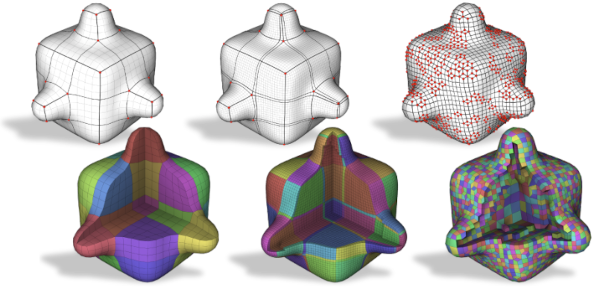
In this article, we provide a detailed survey of techniques for hexahedral mesh generation. We cover the whole spectrum of alternative approaches to mesh generation, as well as post processing algorithms for connectivity editing and mesh optimization. For each technique, we highlight capabilities and limitations, also pointing out the associated unsolved challenges. Recent relaxed approaches, aiming to generate not pure-hex but hex-dominant meshes, are also discussed. The required background, pertaining to geometrical as well as combinatorial aspects, is introduced along the way.
@article{10.1145/3554920,
author = {Pietroni, Nico and Campen, Marcel and Sheffer, Alla and Cherchi, Gianmarco and Bommes, David and Gao, Xifeng and Scateni, Riccardo and Ledoux, Franck and Remacle, Jean-Fran\c{c}ois and Livesu, Marco},
title = {Hex-Mesh Generation and Processing: A Survey},
year = {2022},
publisher = {Association for Computing Machinery},
address = {New York, NY, USA},
issn = {0730-0301},
url = {https://doi.org/10.1145/3554920},
doi = {10.1145/3554920},
abstract = {In this article, we provide a detailed survey of techniques for hexahedral mesh generation. We cover the whole spectrum of alternative approaches to mesh generation, as well as post processing algorithms for connectivity editing and mesh optimization. For each technique, we highlight capabilities and limitations, also pointing out the associated unsolved challenges. Recent relaxed approaches, aiming to generate not pure-hex but hex-dominant meshes, are also discussed. The required background, pertaining to geometrical as well as combinatorial aspects, is introduced along the way.},
note = {Just Accepted},
journal = {ACM Trans. Graph.},
month = {jul},
keywords = {dual sheets, block decomposition, hexahedral mesh, frame field, integer-grid map, polycube}
}
